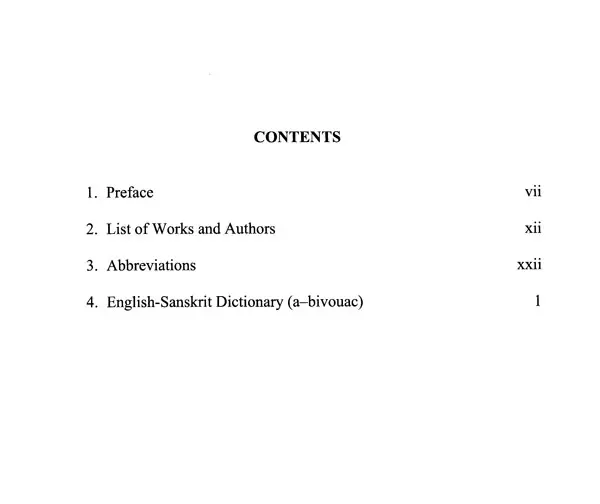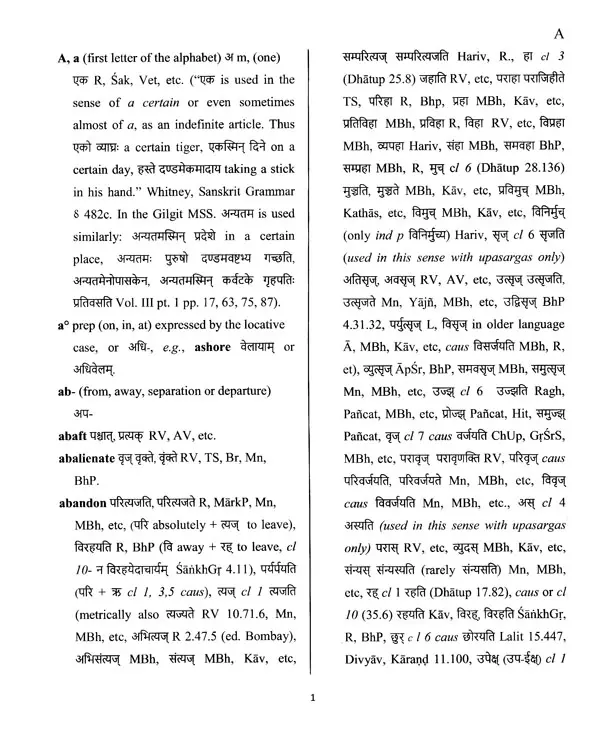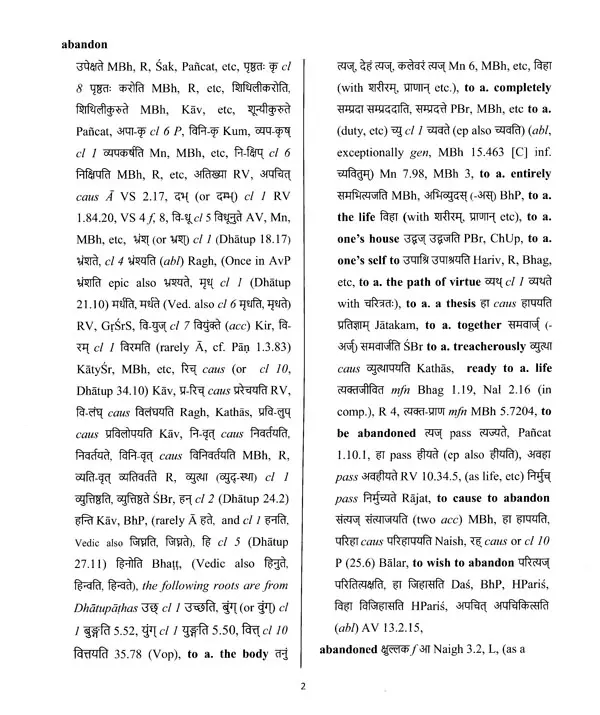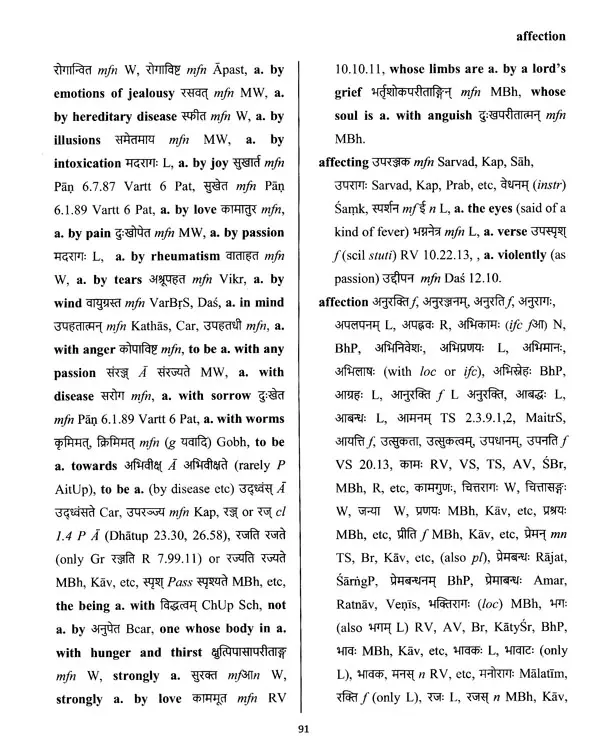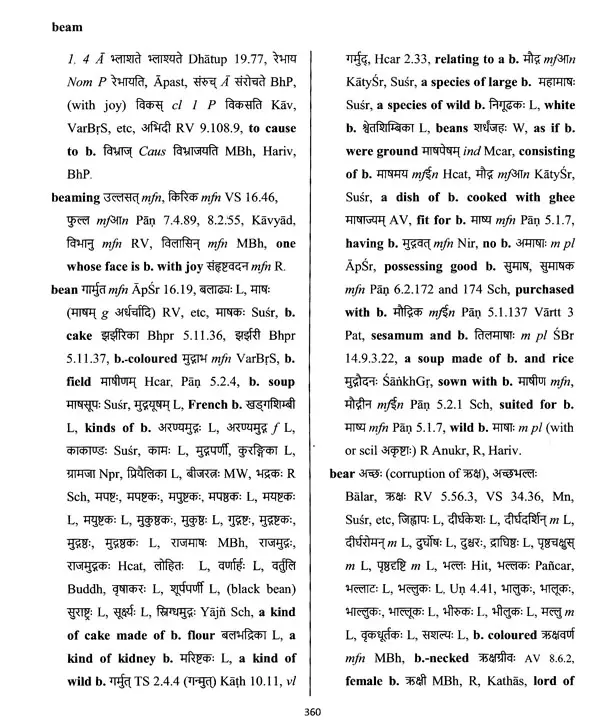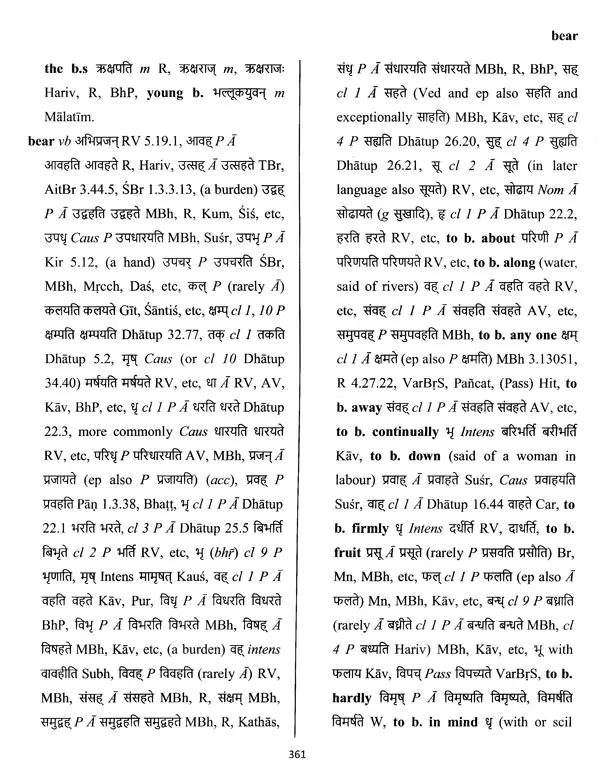
English- Sanskrit Dictionary- Comprising The Millenarian Linguistic Heritage of Sanskrit From The Rgveda to The 18th Century (A - Bivouac)
Book Specification
| Item Code: | UAJ849 |
| Author: | Raghu Vira |
| Publisher: | Bharatiya Vidya Bhavan |
| Language: | English and Sanskrit |
| Edition: | 2021 |
| ISBN: | 9789391622015 |
| Pages: | 440 |
| Cover: | Hardcover |
| Other Details | 11.00 X 9.00 inch |
| Weight | 1.40 kg |
Book Description
It is the first comprehensive English-Sanskrit dictionary of all the Sanskrit equivalents of an English word. It is all-inclusive and covers the complete linguistic heritage of Sanskrit from the Rgveda down to the eighteenth century. All the roots of the Dhatupathas have been incorporated so that the vast semantic spectrum of Sanskrit vis-a-vis a single English verb can be envisaged in its timeless efflorescence. The rare root du (Dhatupatha 22.46) occurs once in the Rigveda and survives in two words in Classical Sanskrit: dura 'distance' and duta 'envoy'. It means 'to go', Davayati 'to make distant' occurs in the Bhattikavya 2.55 which had vowed to use rare words and rare formations of grammar. This root travelled as far as Greece and MW cites three conjugated forms in Greek: duo, duno, deuomai. The innermost sanctum of a temple in Greece was aduton (garbhagrha), literally a place not to be entered (from a 'not' + dutos 'to be entered' from the root duein 'to enter'). It is spelt `adytum' in English as a technical term in Greek archeology.
Sanskrit is rich in synonymy and this affluence is fully reflected in the overflow of Sanskrit words for any English vocable. Sir Monier Monier-Williams compiled his magnum opus, A Sanskrit-English Dictionary which appeared from the Clarendon Press in 1899. Prof. Raghu Vira compiled this English-Sanskrit Dictionary to include each and every item from Monier-Williams. This grandfather dictionary which will run to ten volumes was compiled as a basic component for the creation of new words in Indian languages. This dictionary with colossal number of Sanskrit nouns, verbs, adjectives etc. for every semanteme in English ensures that Indian languages will never stand in dearth of fullest expression. Scientific interest demands specialization and infinite ramification of technical terms. This dictionary is a vade mecum for creating terms for humanities as well as for the natural sciences.
This dictionary represents the linguistic dreams of a renascent India seeking freedom from centuries of foreign domination in the dual paradigms of self-governance and self-expression. The karma of words had to rise to the proliferation of terms that were the inner being of the constantly evolving progress of phenomena and concepts in the natural sciences both in depth and precision. Prof Raghu Vira realized during his three years of profound study and intense perception of the astounding development of Europe that India had to evolve inter alia, a language of great power whose prime qualities have to be precision and lucidity. It should be an ideal language with the intrinsic power to go to the core scientific concepts, to grasp ideas that defy expression in ordinary literary language.
**Contents and Sample Pages**

